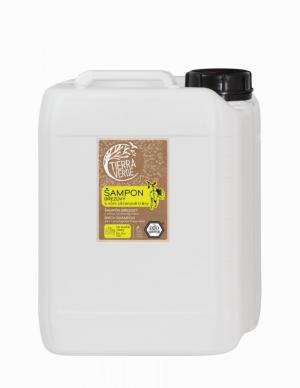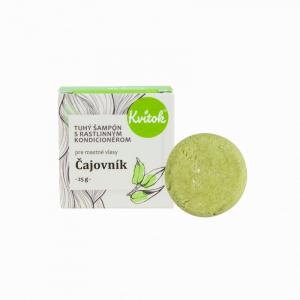
Why Hair Pain Can Be a Symptom of Stress and Tension

What Could Be Causing That Unpleasant Pain in Your Hair?
Everyone knows what a headache feels like. But scalp pain? That's an experience that many people can't quite name, yet they've felt it. It's a peculiar, stabbing or burning pain that appears when you touch, comb, or even just move your hair. It's often described as pain in the hair roots, sometimes localized just at the crown of the head. This discomfort can be short-lived, but for some people, it persists for days or repeatedly returns. What could be causing this? And how can you relieve the unpleasant tension?
Why Does Our Scalp Hurt?
Unlike the hair itself, which is made of dead protein called keratin and feels nothing at all, the scalp is full of nerve endings and blood vessels, which is why it can hurt. This pain is often mistaken for hair pain, but it actually originates from the skin where the hair follicles are anchored. This type of pain is professionally referred to as trichodynia.
Typical symptoms include:
- burning or stabbing pain on the crown or sides of the head,
- a feeling of tension or pulling at the hair roots,
- increased sensitivity when touching or combing,
- possibly redness or flaking of the skin.
For some people, scalp pain appears suddenly and without an obvious reason, while for others it's a recurring problem.
Hair Root Pain at the Crown
One of the most common reasons for scalp pain is mechanical irritation. Tight hairstyles, such as ponytails, buns, braids, or glued hair extensions, can exert prolonged pressure on the hair follicles. When the hair is then let down, the scalp is irritated and sensitive, which can cause the feeling that "our hair hurts."
Markéta, a mother of two, experienced this herself. She tied her hair into a tight ponytail every morning to keep it out of the way. "In the evening, my head would always start hurting at the crown. I thought it was from fatigue, but then my hairdresser told me it could be from having my hair pulled tight all day. When I started wearing my hair loose, the pain gradually disappeared."
Another common culprit is frequent dyeing or using harsh products, which disrupt the natural protective barrier of the scalp. This can lead to irritation, inflammation, or even microtraumas that cause discomfort.
Stress also plays a significant role. It's often underestimated, but the impact of psychological tension on hair health is well known. Tension in the head and neck muscles can lead to reduced blood circulation to the scalp, resulting in sensitivity and pain.
And then there's one more thing that might surprise you – weather changes. Especially the transition from warm to cold seasons, when the scalp becomes drier, can cause pain and itching. In winter, we also wear hats, which increase friction and complicate air circulation around the scalp, potentially exacerbating irritation.
Try our natural products
Covid and Scalp Pain
Since the onset of the Covid-19 pandemic, hundreds of studies have examined various manifestations of the disease. Although scalp pain isn't among the typical symptoms, some patients reported it during or after the illness. Scientists aren't quite sure why this occurs, but there are several theories.
One theory is that after recovering from Covid, a condition known as telogen effluvium can occur, which is temporary hair loss due to stress or fever. During this process, hair follicles enter a "resting phase," which can be associated with pain. Another theory suggests that the virus itself disrupts blood supply and causes an inflammatory reaction, which may manifest as pain in the hair roots.
Many people describe similar experiences on forums and discussions. "After Covid, my scalp hurt for weeks, especially when combing or lying on a pillow. My hair also fell out more. My doctor told me it could be a normal reaction of the body to stress and illness. Head massages and gentle natural shampoos helped me," writes a user on the Czech discussion forum Modrý koník.
What to Do If Your Scalp Hurts?
If hair root pain persists or recurs, it might be worth considering whether it's a signal that the body is out of balance. The first step should be to adjust daily hair care and change habits.
When hair behaves like trampled grass, a few small adjustments can work wonders – like a looser hairstyle that doesn't tug at the roots, a natural shampoo free from unnecessary chemicals, or a gentle brush with natural bristles. Give your hairdryer a break or at least lower its temperature, treat yourself to head massages occasionally, and let hair colors and styling products rest for a while – even hair deserves a break.
In some cases, pain may be due to inflammatory diseases such as seborrhea, psoriasis, or folliculitis – in these instances, seeing a dermatologist is advisable. If the pain is also associated with hair loss, redness, dandruff, or other symptoms, professional examination is definitely worthwhile.
An interesting tip from natural care is the use of herbs like nettle, rosemary, or mint – they promote blood circulation in the scalp and have antibacterial properties. Essential oils like peppermint or tea tree are often used in blends for sensitive scalps, always in very low concentration and mixed with a carrier oil, such as jojoba.
Lifestyle also plays a role. Lack of sleep, dehydration, unbalanced diet, or excessive caffeine can affect skin condition and contribute to its irritation. Mental well-being is also crucial – many studies confirm that stress is a significant factor for the health of both hair and skin.
When Hair Pain is Related to Nerves
In some cases, scalp pain may have a neurological origin. So-called allodynia is a condition where a person feels pain in response to normal stimuli that don't usually hurt – like the touch of hair or the pressure of a hat. It may be associated with migraines, fibromyalgia, or other neurological conditions. Again, if the pain is intense or long-lasting, consulting a doctor isn't a bad idea.
Interestingly, for some people, hair root pain occurs just before a migraine as a warning sign. If someone notices that pain in the crown or nape area regularly appears before an attack, it can help better manage or prevent migraines.
Hair care isn't just about appearance, but also about overall health. If you're often troubled by scalp pain or tension at the hair roots, it's good to listen to your body. Often, it's not just a cosmetic inconvenience, but a signal to slow down, change habits, or give your body more natural treatment. As Hippocrates said: "Disease does not come from nowhere – it is always a consequence of balance, or its disruption." And this applies to the scalp too.







